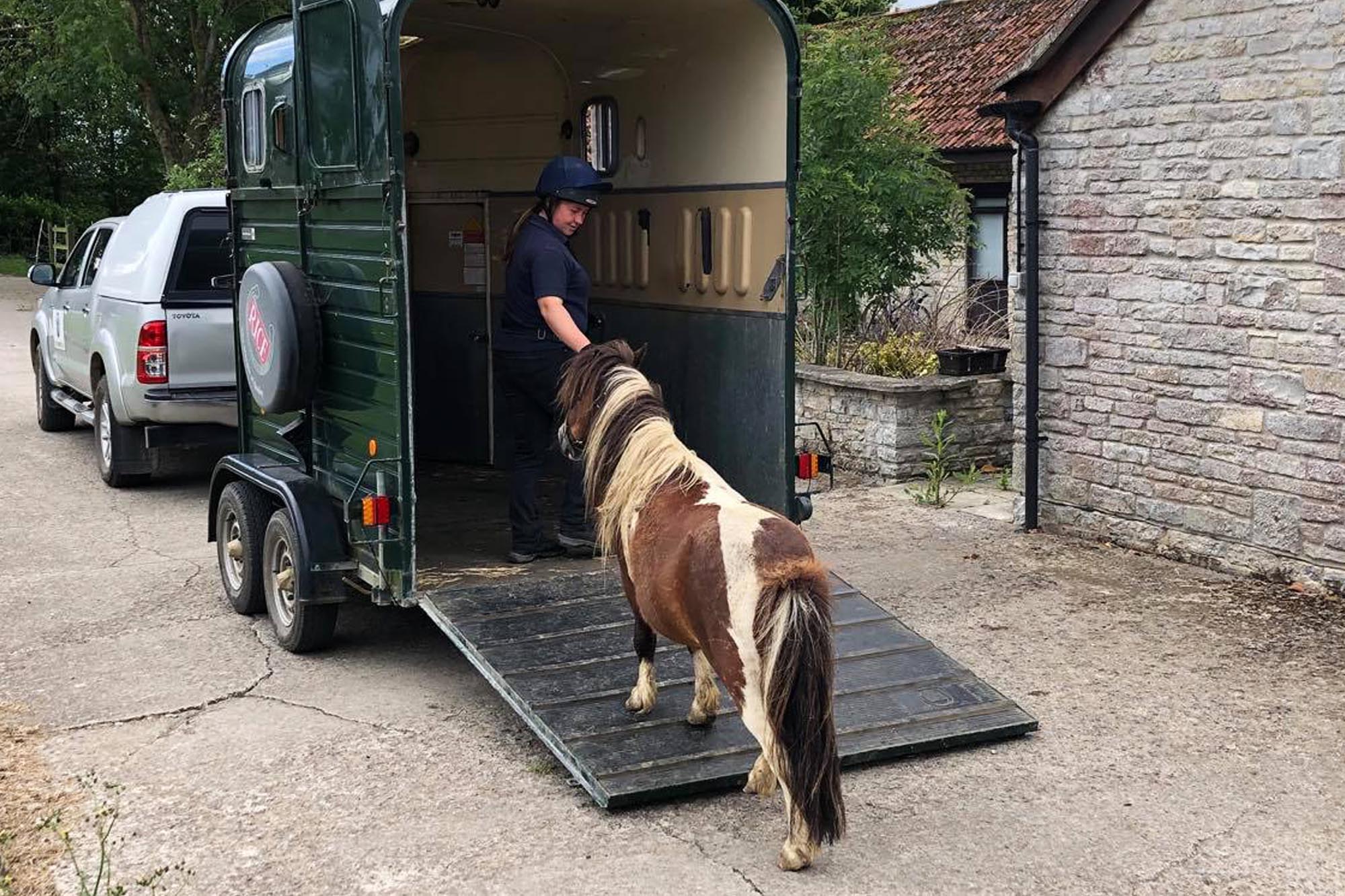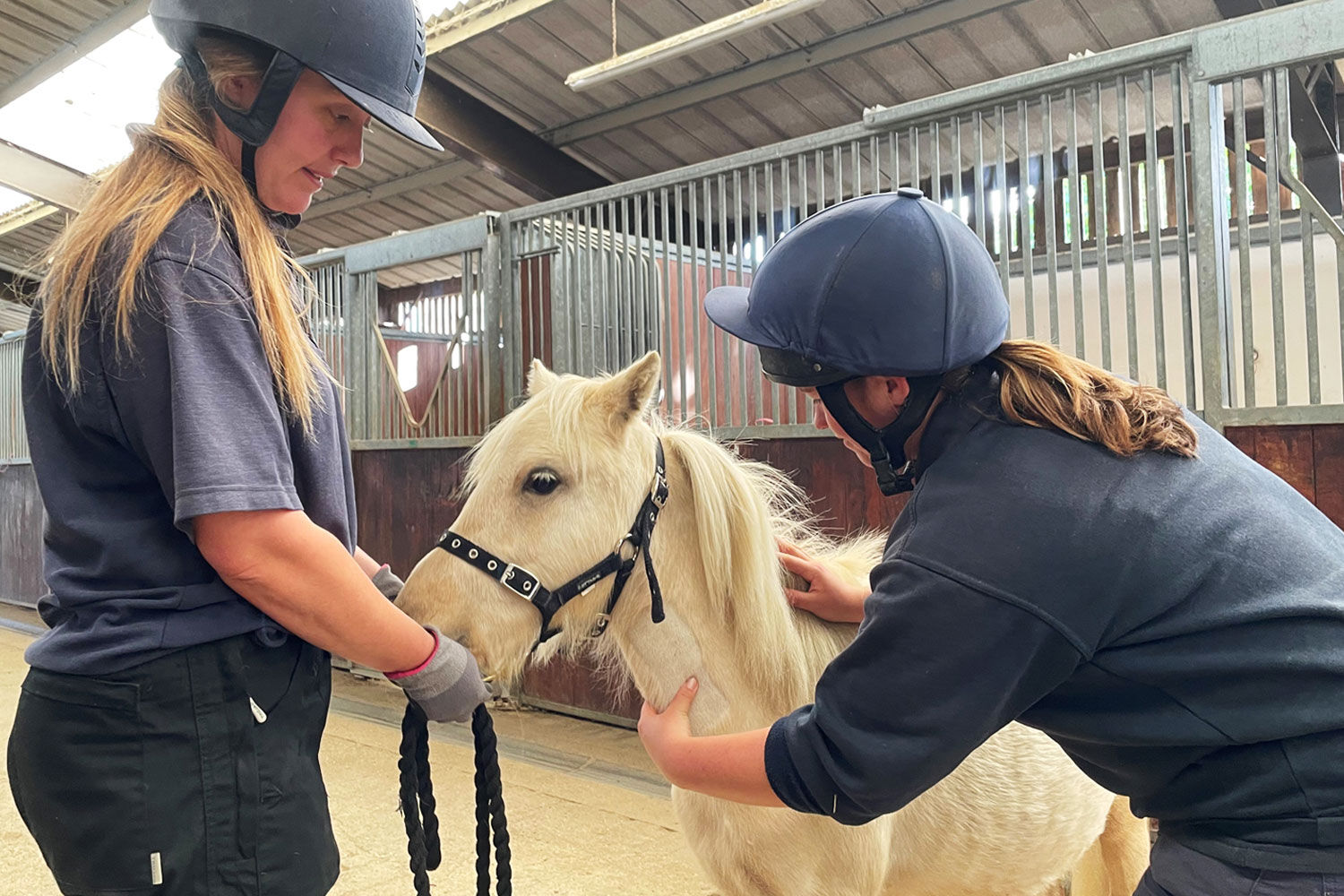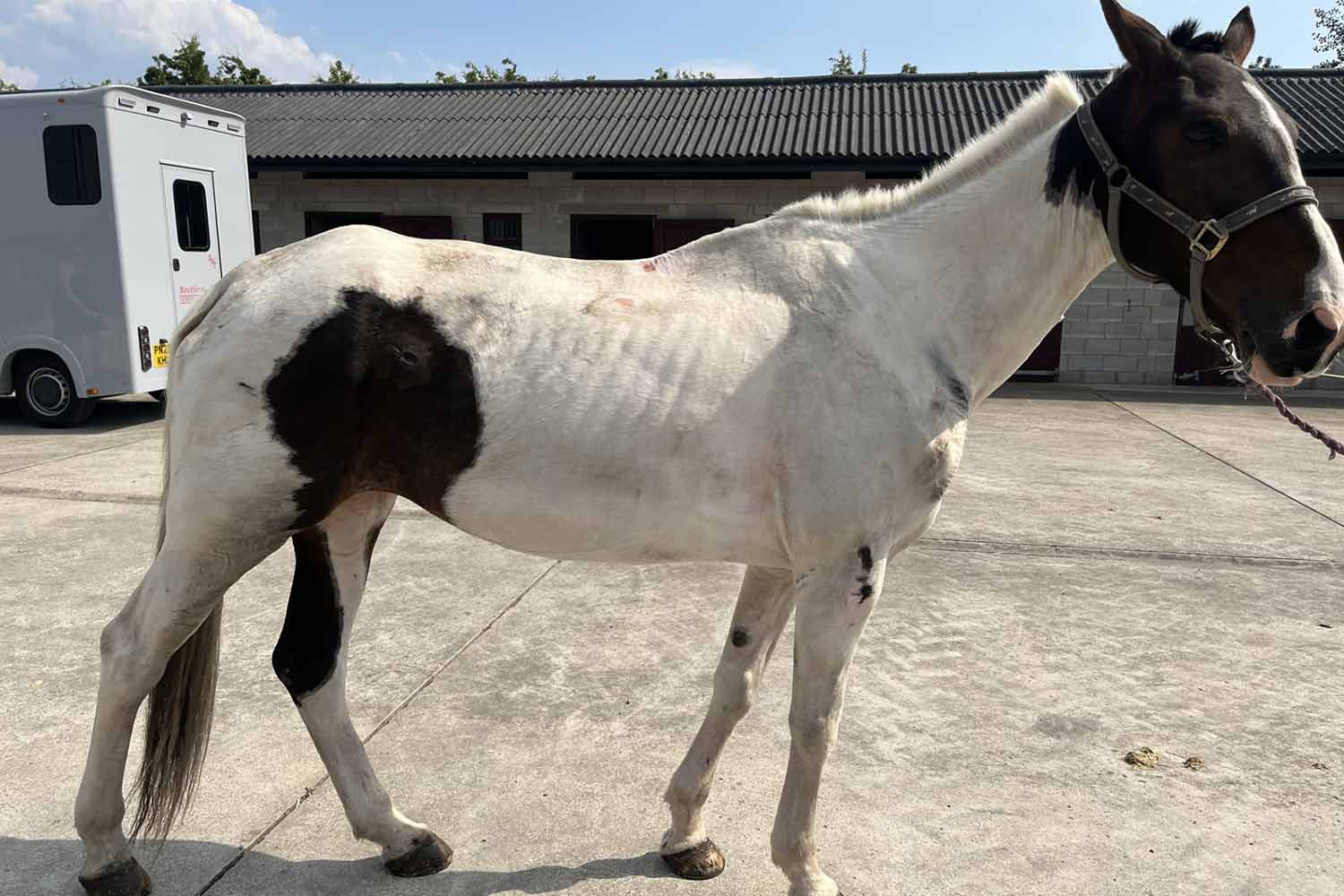Preparation and practice: key aspects to loading and travelling your horse safely
Research and Education Officer Alana Chapman shares expert advice on how to give your horse the best chance of loading and travelling safely and calmly.
Posted on 14/08/2020

Loading can be a huge source of stress for horses and a common cause of injury to horses and their handlers. Preparing a horse to travel by familiarising them with the trailer or lorry and practising loading and unloading well in advance – allowing them plenty of time to get used to the idea – can save a huge amount of time in the long run.
Ultimately, horses who don’t load or travel well can be dangerous, so it really is important to get your horse used to loading, travelling and unloading safely and calmly. Never be afraid to enlist expert help if you need it – and even if it seems expensive it could be far cheaper than the vets bills if something were to go wrong because your horse is so stressed about loading!
You can practise a lot of the skills a horse needs to load and travel safely without using a vehicle – they need to be able to lead nicely, stand when asked and be used to being tied up calmly. Once your horse has these skills, you can move on to practising over different surfaces – and this could start with something as simple as walking over a pole on the ground, before moving on to something like a tarpaulin (ensuring this is secured down if you choose to do this).
If you haven’t tried loading your horse before, it’s best not to set out determined that you will load them in the first practice session. Your horse may not have seen a lorry or a trailer before or had a bad experience last time they were asked to load/travel in one, so it’s much better to keep everything low key and make it a positive experience for them.
It’s important to remember that stress is cumulative – and that stressed and frightened horses can’t learn! If you can keep the situation as calm as possible, you give your horse a much better chance of having a positive experience – and staying safe. A horse who becomes visibly anxious at the mere sight of a lorry or trailer is at much greater risk of injury that one who’s had positive experiences and remains calm.
There aren’t any shortcuts to training your horse to load, travel and unload safely and calmly – time, practice and patience really are key. The teams at our Rescue and Rehoming Centres will do lots of short sessions with our horse and ponies when they start teaching them to load – it’s much better to do a little bit every day over a week (or a few weeks if your horse needs it) than decide on day one that you’re setting out to load your horse today.
There is a lot of help out there, so if you do need expert help please don’t be afraid to get it. You could ask your friends who they know and trust, or search for someone who is qualified to assist you. It really is important that your horse has positive experiences with loading and travelling and a bit of investment of time – and perhaps money – can pay off no end at a later stage.
Our team will start getting our horses and ponies ready to practise loading by first ensuring that they can lead nicely and stand calmly, then moving on to tackling some different obstacles and surfaces. Throughout this process it’s key to observe your horse’s behaviour and make sure they’re within their comfort zone at each stage, keeping them calm and relaxed.
Once the horse is relaxed with these first stages, you can then begin to introduce a novel environment, such as the lorry or trailer. The team aims to ensure the horse has a positive experience throughout this process, keeping sessions short and ending them on a good note.
When the horse is consistently walking on and off the lorry or trailer confidently and is calm about being shut in, they can start to be taken for short journeys. Don’t be afraid to take an experienced travel buddy with them at this stage if they need one as long as they get on well – it’s much better to ensure your horse has a positive experience from the start and then start to introduce the idea of travelling solo once they’re confident going on short journeys with a friend.
It’s worth remembering that if your horse or pony doesn’t travel very often they may well need a bit of refresher training before you take them out again. It might seem time-consuming to do this, but these sessions don’t need to be very long and the pay-off really is worth it.
Another consideration is to prepare horses physically for travelling: make sure in the hours before a journey that your horse is well-rested, fed and fully hydrated – even in cold weather! It’s also important to give your horse a thorough inspection for any signs of injury or illness, ideally making sure you check their temperature as well.
If you use a professional transporter – or a friend or even a friend of a friend – to travel your horse, do check their credentials as ultimately we’re responsible for our horses’ safety even if we’re not the ones driving. If you use your own vehicle, please do make sure it’s well maintained and fit for purpose – and that you don’t exceed the weight limit or towing capacity of your vehicle, as this is surprisingly easy to do!
To summarise, the key points to remember are:
Horses need to be fit to travel in order to ensure that they arrive at their destination still fit and healthy
We can’t be too prepared to travel our horses!
Preparation for travelling starts with solid groundwork
Time and patience invested in practising loading and travelling really does pay off
Making sure your horse is calm and relaxed at each stage is vital
Be sure that whoever is transporting your horse is competent to do so
Make sure your vehicle is well maintained and safe for use
Don’t be afraid to enlist expert help if you need it – it really is worth it
If you’d like further advice on travelling your horse – or even how you should begin loading practice with them – do give our Advice Line a call in office hours on +441983 497238 and our team will be very happy to help.
Topics
Related Blog Posts

Plan for an emergency when you’re not around – help us to help your horse
Deputy Chief Field Officer Jon Phipps has top tips for owners on making plans just in case your horse injures themselves when you’re not there.

How to help a needle-shy horse overcome their fear
Grooms Amy and Emily explain how they work with horses who are nervous with needles before a visit from the vet.
Recommended News Articles

World Horse Welfare welcomes FEI decision on NSAIDs
Leading equine charity welcomes FEI decision on non-steroidal anti-inflammatory drugs.

Horse owner found guilty of welfare offences as mare is rehabilitated at Penny Farm
Man banned from owning horses after driving pregnant mare to exhaustion at Appleby Horse Fair.

Royal President visits World Horse Welfare in Norfolk
HRH The Princess Royal visited the Norfolk centre of Britain’s largest equine rescue and rehoming charity on 11th May.
Enjoy reading stories like this?
Join over 55,000 other horse lovers and sign up for our email newsletter

Join over 55,000 other horse lovers and sign up for our email newsletter
Sign me up now